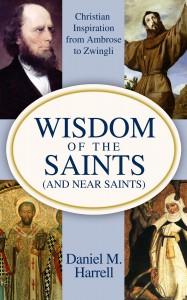OK, so this is nothing especially new, but I liked the way that Ross Douthat, in his book Bad Religion: How We  Became a Nation of Heretics, tied the decline in American church attendance not to the loss of religion, but to its redirection. Jesus can’t save me the way I want to be saved, but maybe Barack Obama or Mitt Romney can. Either way, I must believe not according to my convictions, but according to the platform my savior represents.
Became a Nation of Heretics, tied the decline in American church attendance not to the loss of religion, but to its redirection. Jesus can’t save me the way I want to be saved, but maybe Barack Obama or Mitt Romney can. Either way, I must believe not according to my convictions, but according to the platform my savior represents.
To believe is to choose: If you’re theologically conservative you must be conservative on taxes and spending and everything, because otherwise you’re just playing into the hands of “the secular-socialist machine” (to borrow Newt Gingrich’s memorable phrase). If you’re politically liberal then you should be theologically liberal as well: It isn’t enough to back welfare programs or environmental protections; you’re a bigot and a tool of the wingnuts if you don’t also support gay marriage. If you don’t want to vote for George W. Bush because of the Iraq War then you’re playing into the hands of Christianity’s left-wing enemies; if you can’t vote for Barack Obama because of abortion then you’re an accomplice to the shredding of the Constitution. You simply cannot be a social democrat and an orthodox Catholic, or a conservative Christian who’s also genuinely antiwar. In the Manichaean landscape created by the heresy of nationalism, these categories are either incoherent, sinful, or both.
As a preacher whose politics occasionally make their way into the pulpit, I’ve endured the blowback of saying one thing and everything else being assumed. In a Revelation sermon after the 2008 market crash I mused about Wall Street being a candidate for the antichrist only to then get labeled a pro-abortion socialist who thinks we all came from monkeys (which can’t be true because monkeys are our evolutionary cousins, not our parents). OK, so I exaggerate, but I do think that Douthat is on to something.
My own suspicions of secular culture—be it pop, political or otherwise—deem entrusting Christian morality to secular implementation a dubious enterprise. Be it prayer in schools, the pledge of allegiance or “in God we trust” oddly printed on American mammon, whenever Christian faith has assimilated into civil religion, it significantly loses its salt. Maybe that’s why Jesus said render unto Caesar what is Caesar’s and to God what is God’s. The Kingdoms of this world are not the Kingdom of heaven. Not that citizens of a democracy don’t have the right to make their opinions heard, we do. We can write our legislators regarding the issue of gay marriage or just war, homelessness or taxation; we can vote—or not. But whatever we do, I think it’s wishful thinking to imagine secular culture adopting Christian mores if it does not first adopt Christian faith. There’s some good religion that needs doing first.












